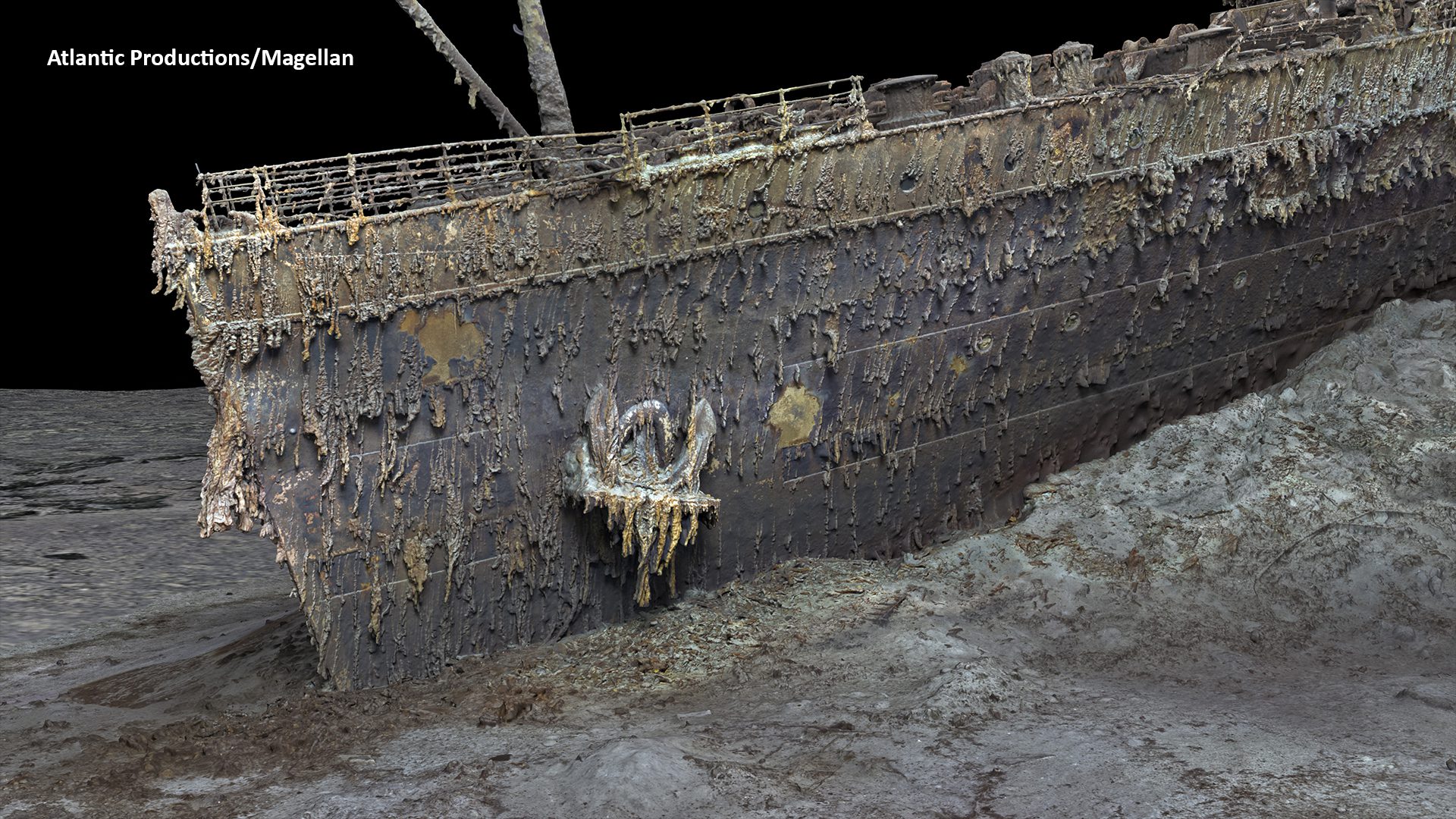The largest underwater scanning project in history has been used to create the first-ever digital replica of the Titanic, offering a glimpse of one of the world’s most famous shipwrecks with unbelievable clarity.
The new scan captures the sunken remains of the Titanic in its entirety, revealing a complete three-dimensional view of the shipwreck caked in rust, seaweed, and assorted debris.
It was captured during a six-week expedition in the summer of 2022 by Magellan Ltd, a deep-sea mapping company, and Atlantic Productions, a UK-based production company that’s making a documentary about the project.
The decaying glory of the Titanic like you’ve never seen before.
Image credit: Atlantic/Magellan
Using a ship positioned near the wreck, some 700 kilometers (435 miles) off the east coast of Canada, the team deployed two submersibles – named Romeo and Juliet (although shouldn’t that be Rose and Jack?) – that spent many hours detailing the wreck at a depth of around 3,800 meters (12,500 feet) below the water’s surface.
It gathered a massive 16 terabytes of data, as well as over 715,000 images and full 4k video footage of the wreck.
This was then used to create a “Digital Twin” of the wreck. The team has boasted that the digital model has such extraordinary detail that it’s even possible to see the serial number on the ship’s propeller.
The serial code on the ship’s propeller.
Image credit: Atlantic/Magellan
“This is the Titanic as no one had ever seen it before,” Gerhard Seiffert, 3D Capture Specialist at Magellan, said in a statement sent to IFLScience.
“When we saw the data come in it was all worth it – the level of detail we saw and recorded was extraordinary,” he added.
“What we’ve created is a highly accurate photorealistic 3D model of the wreck. Previously footage has only allowed you to see one small area of the wreck at a time. This model will allow people to zoom out and to look at the entire thing for the first time. So, by capturing this 3D model, what we’re able to do is visualize the wreck in a completely new way, there’s all kinds of amazing small little details that you can see,” Seiffert continued.
RMS Titanic was the supposedly “unsinkable” ocean liner that famously sank in the North Atlantic Ocean on April 15, 1912, after striking an iceberg during her maiden voyage from Southampton in England to New York City.
At least 1,500 passengers died and the wreck sunk to the seabed, some 4,000 meters (13,123 feet) below sea level around 740 kilometers (400 nautical miles) from Newfoundland in Canada.
The final resting place of the Titanic wasn’t discovered until September 1985, 73 years after it met its icy fate.
The latest scanning project is helping to shed light on the latest chapter of the Titanic’s story: its rusting demise into ruins.
“I have been studying Titanic for 20 years, but this is a true game-changer,” explained Parks Stephenson, Titanic Expert.
“We’ve got actual data that engineers can take to examine the true mechanics behind the breakup and the sinking and thereby get even closer to the true story of the Titanic disaster. For the next generation of Titanic exploration, research, and analysis, this is the beginning of a new chapter,” said Stephenson.
Source Link: Stunning New Titanic 3D Scans Show Shipwreck In Unbelievable Detail
